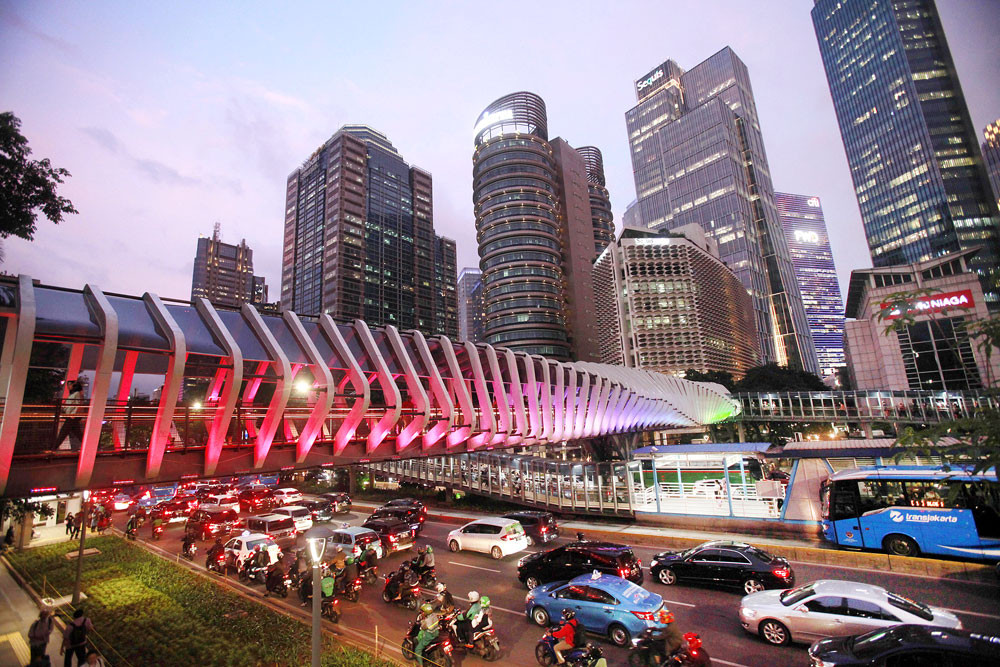
New wave: Pedestrians use the newly completed crossing bridge over Jl. Sudirman in Central Jakarta in this file photo. (The Jakarta Post/Iqbal Yuwansyah via Asia News Network)
JAKARTA — President Joko “Jokowi” Widodo’s plan to relocate the capital city to East Kalimantan has picked up pace with his announcement of the location and the timeline of the project this week. In 2024, civil servants should begin moving there.
He said Jakarta and Java could no longer bear their burdens, which will mount in the years to come. Jakarta is sinking faster than many other metropolises and experiences annual flooding, not to mention the lurking threats of megathrust earthquakes. Jokowi said one of the reasons for the choice of East Kalimantan as the site of the new capital was “safety”.
For Jakarta, however, problems and challenges will remain, if not worsen, even when hundreds of thousands of its inhabitants move to the new capital city. Without the President and his ministers, Jakarta will endure a heavy burden as it does today. It will continue sinking, facing inundation when heavy rains fall, and remain vulnerable to high-magnitude quakes. Traffic congestion, air pollution and piling garbage will continue to characterize the city.
Jakarta Governor Anies Baswedan said in April that the relocation of the capital city, along with an estimated 180,000 civil servants plus thousands of military and police personnel, would barely change the city, home to a population of 10 million. There are 17 million registered private vehicles roaming Jakarta, only 141,000 of which are government vehicles.
Many civil servants who work for the central government are spread across Greater Jakarta, which has a population of about 30 million people. Assuming that all civil servants bring their families to the new capital, located in North Penajam Paser and Kutai Kertanegara regencies, Jakarta will only lose 800,000 of its current inhabitants. That number is not small, but it will not put an end to the environmental problems in Jakarta and its surrounding cities.
Neither will the relocation of the seat of power deprive Greater Jakarta of economic growth and the privileges it has enjoyed for decades. Property prices in Jakarta and its satellite cities are not likely to decline because Jakarta will remain the country’s financial, trade and cultural hub. It will be hard to convince big companies to move their headquarters from Jakarta to the new capital city.
Jakarta will continue to be the location of the Indonesia Stock Exchange, glamorous shopping malls, bustling middle-class shopping centers, movie theaters, performing arts halls, art galleries and so on. Top-notch schools, universities and hospitals will all stay in Jakarta.
The city will be as vibrant as it is today and provide prime opportunities for those intent on developing their careers. Jakarta will remain the land of dreamers, with a divide between the richest and the poorest.
For many years to come, Jakarta will continue to show its unfriendly face, although teenagers and the youth might still consider it to be the coolest place to live. Jakarta can bid adieu to the capital, but the city is going to be just fine.